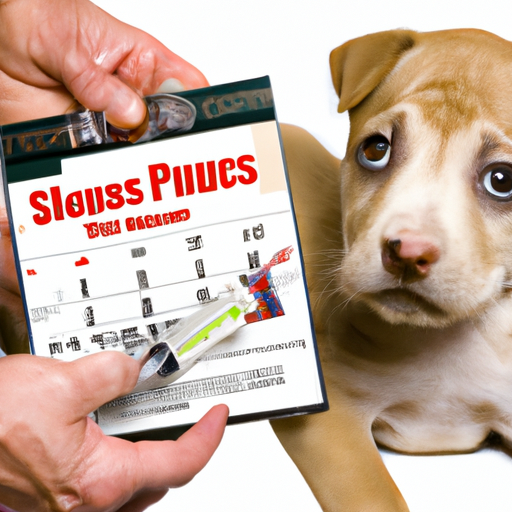Vaccinations for your pup are a critical part of ensuring their long-term health and wellbeing. The rabies vaccine, in particular, is both a legal requirement and an essential protection against a deadly disease. The timing of this vaccination can somewhat vary, but there are general guidelines that most veterinarians follow. Let’s dive into these details.
The Importance of Rabies Vaccination
Rabies is a severe, and often fatal, viral polioencephalitis that specifically affects the gray matter of a dog’s brain and its central nervous system. As a dog owner, it’s crucial to understand the importance of vaccinating your puppy against rabies.
-
Protection Against a Fatal Disease: Rabies is almost always fatal once symptoms appear. The vaccine is nearly 100% effective when administered in time and can prevent your puppy from contracting this deadly disease.
-
Legal Requirement: In many areas, rabies vaccination is a legal requirement for all dogs. This is to protect both the pet population and humans from the spread of the disease.
-
Public Health: Rabies can be transmitted to humans, and human rabies is also almost always fatal. By vaccinating your dog, you’re helping to protect your family and your community.
When to Vaccinate
According to the American Animal Hospital Association (AAHA), puppies should receive their first rabies vaccination at the age of 12 to 16 weeks. It’s essential to note that each state has its regulations regarding the earliest age at which the rabies vaccination is considered valid.
| State | Minimum Age for Rabies Vaccination |
|---|---|
| California | 3 months |
| New York | 4 months |
| Texas | 4 months |
| Florida | 4 months |
However, your vet may recommend a different timing based on your puppy’s health and lifestyle factors.
The Rabies Vaccination Schedule
Your puppy’s first rabies shot is just the beginning of their lifelong vaccination schedule. The rabies vaccine schedule typically looks something like this:
- First Vaccination: At 12 to 16 weeks of age.
- Booster Shot: One year after the first vaccination.
- Subsequent Boosters: Every one to three years, depending on the specific vaccine used and local regulations.
It’s crucial to adhere to this schedule to ensure your pet’s protection against rabies.
Risks and Side Effects
While the rabies vaccine is generally safe, as with any medication or procedure, there are potential risks and side effects. These may include:
- Mild fever
- Sluggishness
- Reduced appetite
- Swelling at the vaccination site
In rare cases, more severe reactions can occur. If your puppy shows any unusual symptoms after vaccination, contact your vet immediately.
FAQs
Q: Can my puppy go outside before they get the rabies shot?
A: Yes, but with caution. Avoid areas with a high risk of rabies exposure, such as wooded areas where wildlife is common.
Q: What if my puppy misses a booster shot?
A: If your puppy misses a booster, contact your vet as soon as possible to reschedule. It’s essential to keep up with the vaccination schedule to ensure your puppy’s protection.
Q: Can the rabies vaccine make my puppy sick?
A: The rabies vaccine can cause mild side effects, but serious illness is rare. Always consult your vet if you have concerns about your puppy’s health post-vaccination.
Q: Is it ever too late to vaccinate my dog against rabies?
A: No, it’s never too late to start. If your dog is overdue for a rabies vaccine, consult your vet immediately.
Vaccinating your puppy against rabies is a crucial part of responsible pet ownership. It helps protect your pet, your family, and your community from a deadly disease. By understanding when and why your puppy needs this vaccine, you’re taking a significant step in ensuring their long-term health and happiness.



